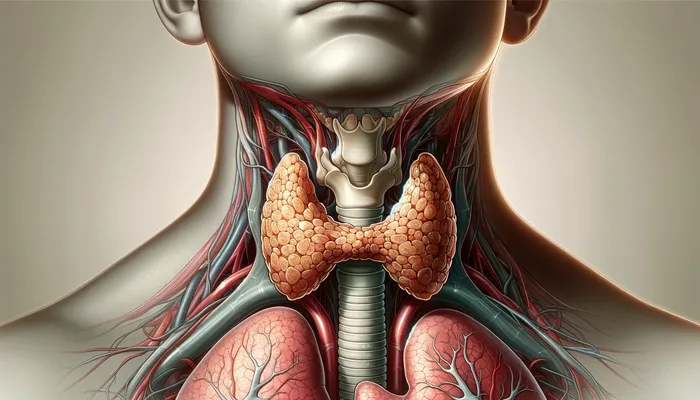Aggressive thyroid cancer has seen a significant increase in cases globally during the past decade and researchers have identified one significant reason why. The University of California, San Francisco (UCSF) conducted a study on 12,000 people, which revealed a strong link between exposure to radioactive iodine and the development of aggressive thyroid cancer.
A Close Look at Chernobyl’s Aftermath
The UCSF researchers studied the thyroid health of people in Belarus who were children during the 1986 Chernobyl nuclear power plant disaster. These people were exposed to radioactive iodine, which was released when the plant’s reactors failed catastrophically. The researchers found that those exposed to radioactive iodine had rates of aggressive thyroid cancer that had never been seen before. The individuals who had the most extensive exposure to the radioactive iodine displayed the highest cancer rates.
Lydia Zablotska, a researcher who teaches epidemiology and biostatistics at UCSF, explained the findings: “Our group has previously shown that exposures to radioactive iodine significantly increase the risk of thyroid cancer in a dose-dependent manner. The new study shows that radiation exposures are also associated with distinct clinical features that are more aggressive.”
The Fukushima Connection
Zablotska also issued a warning regarding fallout originating from the 2011 Fukushima nuclear reactor meltdown in Japan. This disaster, which was caused by a massive earthquake and subsequent tsunami, released radioactive iodine into the environment. According to Zablotska, people exposed to the radioactive iodine released during the Fukushima incident can expect similar consequences as those seen in Chernobyl.
She stated, “Those exposed as children or adolescents to the fallout are at the highest risk and should probably be screened for thyroid cancer regularly because these cancers are aggressive, and they can spread really fast. Clinicians should be aware of the aggressiveness of radiation-associated tumors and closely monitor those at high risk.”
The Importance of Regular Screening
The implications of these findings are clear: individuals who have been exposed to radioactive iodine, even in relatively small doses, should be vigilant and undergo regular thyroid cancer screenings. This is especially important for people who were exposed during their childhood or adolescence, as they are at the highest risk of developing aggressive thyroid cancer.
Regular screenings can help detect thyroid cancer at an early stage, increasing the chances of successful treatment. Moreover, people who have been exposed to radioactive iodine should also stay current on new research and developments pertaining to thyroid cancer risk factors and treatments. By being proactive, high-risk individuals can mitigate the chances of developing aggressive thyroid cancer or dealing with late-stage, difficult-to-treat illness.
Reducing Exposure to Radioactive Iodine
While it’s impossible to completely avoid being exposed to radioactive iodine in the event of a nuclear disaster, there are steps you can take to reduce your risk. In the event of a nuclear emergency, stay informed of updates from public health officials and follow any recommendations they provide to reduce exposure. This might include evacuating the area, sheltering in place, or taking potassium iodide pills, which can help to block the absorption of radioactive iodine by the thyroid gland.
Conclusion
The UCSF study unequivocally shows a strong link between exposure to radioactive iodine and an increased risk of developing aggressive thyroid cancer. The significant increase in cases over the past decade is an alarming reminder of the importance of regular thyroid cancer screenings and staying informed about nuclear disasters and other risk factors.
While it may not be possible to entirely prevent exposure to radioactive iodine, taking steps to minimize your risk and seeking early detection and treatment can help to improve your chances of a successful outcome. To learn more about thyroid cancer, visit the American Thyroid Association and the American Cancer Society.



